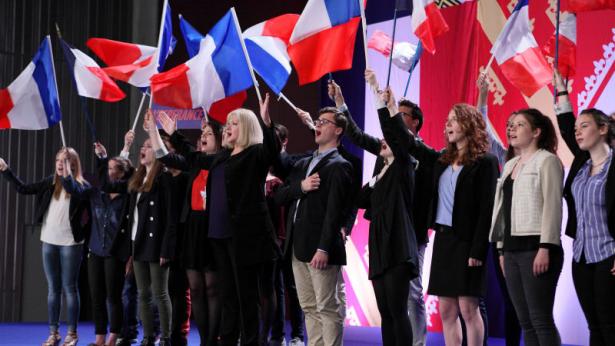film This Is Our Land Draws Gutsy Drama From France’s Right-Wing Resurgence, But Whiffs Where It Matters
Early in This Is Our Land, the latest effort from perpetually underrated French filmmaker Lucas Belvaux (The Trilogy, Rapt, Not My Type), a group of friends—all of them white—are enjoying a backyard barbecue when one of them makes a racist joke. Immediately, someone else calls him on it, insisting that such remarks are unacceptable even in jest. He predictably gets defensive, and it’s all downhill from there; the argument ends with the woman who objected getting up and going home, disgusted not just by one person’s casual racism but by everyone else’s tacit acceptance of it. What’s extraordinary about the scene is who it’s not about: the righteously angry defender of human dignity. She’s a minor character. The film’s protagonist is Pauline (Émilie Dequenne, still best known in the U.S. for playing the title role in Rosetta), who laughs politely at the joke and stays out of the ensuing debate altogether. Belvaux has made a gutsy, discomfiting movie about going along to get along, and just how dangerous that impulse can ultimately be.
Not that he keeps Pauline in the background, by any means. Introduced doing her professional rounds—she’s a nurse who makes house calls, tending primarily to the underprivileged—this compassionate single mom comes across as wholly admirable. The film devotes significant effort to getting viewers on her side, even engineering a charmingly tentative romance with her high school sweetheart, Stéphane (Guillaume Gouix). He’s held extremist right-wing views, but Pauline seems unaware of that; in any case, they’re balanced by the extremist left-wing views held by her father (Patrick Descamps). Pauline herself is largely apolitical, which is precisely why she’s sought out by her old family doctor, Philippe (André Dussollier), who’s active in local politics. Philippe encourages Pauline to run for mayor of her small town, aligned with a party called the Patriotic Bloc, headed by a woman named Agnès Dorgelle (Catherine Jacob). Anyone with passing knowledge of French politics will recognize this as a barely fictionalized version of Marine Le Pen and the National Front, though Philippe expertly assuages Pauline’s concerns, assuring her that the party isn’t fascist or anti-immigrant but merely fighting for everyday working-class folks like herself.
For viewers on the left, Pauline’s journey from proletarian champion to xenophobic mouthpiece constitutes a slow-motion horror movie, and that’s pretty clearly what Belvaux has in mind. He’s not interested in demonizing individuals, though, and pulls off the unexpected gearshift without betraying any of this woman’s deeply lovable qualities—at worst, she looks naïve, and it’s not hard to comprehend how she could be persuaded that she’s sticking to her core principles, vaguely self-defined as they are. In a sense, This Is Our Land genuinely tries to make the case that there are “very fine people on both sides,” even if it does so by suggesting that very fine people are being duped by unscrupulous bigots. The movie is sharpest when it integrates Stéphane’s violent past, thereby demonstrating how ideologues pivot off of extremists to make themselves look more palatable by comparison. Sadly, Belvaux (who wrote the screenplay with Jérôme Leroy) chickens out in the home stretch, choosing not to follow this pessimistic line of reasoning to the conclusion currently visible in France, throughout Europe, and, oh, let’s just say elsewhere. The abrupt loss of nerve facilitating this implausibly happy ending disappoints, but it’s still quite bracing to experience the French equivalent of a two-time Obama voter who flipped to Trump.


Spread the word